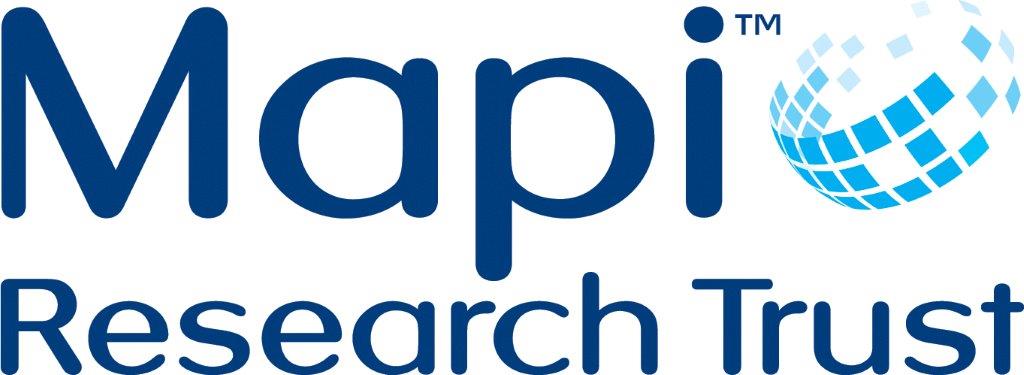Work of Breathing (WOB) represents the work performed by the respiratory muscles to mobilize gases in and out of the lungs ensuring that CO2 removal and O2 delivery appropriately meet systemic metabolic demands. Increased respiratory loads may be from airway obstruction, pulmonary edema, COVID-19 pneumonia and other reasons. With increased respiratory loads, there is a proportional increase in WOB that manifests by increased respiratory rate (RR) followed by recruitment of inspiratory and expiratory accessory respiratory muscles.
Increased WOB is not recognized by the widespread practice of arterial blood gas analysis when assessing patients in respiratory distress. If untreated, increased WOB risks the development of respiratory muscle fatigue leading to hypoventilation, apnea and cardiac arrest.
The lack of a practical non-invasive bedside tool to assess WOB prompted the development of a WOB Scale several years back to be used inside — and more recently — outside the intensive care unit (ICU).
This WOB Scale assigns points to the RR (i.e., one point for RR one to 20 bpm, two points for RR 21 to 25 bpm, three points for RR 26 to 30 bpm and four points for RR greater than 30 bpm). One point each is assigned for nasal flaring, activation of the sternocleidomastoid muscles during inspiration and activation of abdominal muscles during expiration. This results in a WOB Scale ranging from one to seven points. The WOB Scale is easy to teach demonstrating robust inter-rater agreement after learning through a short training module.
This WOB Scale was helpful during the COVID-19 pandemic. Hospitalized patients characteristically present with hypoxemia but without substantial increase in WOB. Yet, as the disease progresses, the WOB increases proportionally to disease severity.
Read more...
A reflex WOB Scale was developed more recently to facilitate its use in less intense clinical settings. An analysis of 110 WOB Scale measurements in a mixed population of ICU and general ward patients was done. Activation of accessory respiratory muscle occurred in 1.5 percent when the RR was less than or equal to 20 bpm. However, it was up to 64 percent when the RR was greater than 26 bpm. This data supported the use of a reflex WOB Scale requiring assessment of accessory respiratory muscle activation only when the respiratory rate exceeds 20 bpm.
Read Less...
Register for this webinar to learn why the WOB Scale is a useful bedside tool to promptly identify increased WOB. This has led to interventions aimed at reducing respiratory load and/or instituting non-invasive or invasive support of the respiratory muscles.
References
Apigo M, Schechtman J, Dhliwayo N, Al Tameemi M, Gazmuri RJ. Development of a work of breathing scale and monitoring need of intubation in COVID-19 pneumonia. Crit Care. 2020, 24(1):477. DOI: 10.1186/s13054-020-03176-y. PMID: 32736637; PMCID: PMC7393620.
Nadeem A, Fanapour P, Apigo M, Kim S, George S, Khan M, Shahid A, Patel C, Carnate R, Gazmuri RJ. COVID-19 pneumonia: Guiding the decision to intubate based on work of breathing assessment independent of oxygenation. Int J Crit Care Emerg Med 2021, 7:126. DOI: 10.23937/2474-3674/1510126.
Speakers

Raúl J. Gazmuri MD, PhD, FCCM, Director of the Resuscitation Institute, Professor of Medicine and Professor of Physiology & Biophysics at Rosalind Franklin University
Dr. Gazmuri obtained his Medical Degree and internal medicine training from the University of Chile and practiced critical care medicine before traveling to the United States in 1986 for a research fellowship at today’s Rosalind Franklin University of Medicine and Science (RFUMS) under the mentorship of late Professor Max Harry Weil, MD, PhD (one of the founding fathers of critical care medicine). Dr. Gazmuri devoted three years as a full-time research fellow and five additional years as a critical care fellow, PhD student and junior faculty under Dr. Weil’s mentorship.
In 1994, he earned a PhD degree in Physiology & Biophysics from RFUMS and in 1997 he was inducted Fellow of the American College of Critical Care Medicine. Currently, Dr. Gazmuri is a tenure-track Professor in the Department of Medicine (primary appointment) and in the Department of Physiology & Biophysics (secondary appointment) at RFUMS. In 2010, RFUMS supported the creation of the Resuscitation Institute — for which he serves as Director leading basic and translational research on acute life-threatening conditions including cardiac arrest and various forms of circulatory shock with focus on identifying novel therapeutic approaches.
Read more...
Dr. Gazmuri has contributed to the field of Resuscitation and Critical Care Medicine with more than 200 publications and has received — as primary and/or senior author — multiple awards at national scientific meetings. He has served as a member of the Basic Life Support, the Advanced Cardiac Life Support and the Scientific Subcommittees of the Emergency Cardiovascular Care at the American Heart Association. He has also served as member of the International Liaison Committee on Resuscitation involved in the development of CPR Guidelines. He is currently an organizing member of the Resuscitation Science Symposium, and frequently serves at NIH Study Section panels.
In 2017, Dr. Gazmuri founded Resuscitation Therapeutics, Inc. with the goal of facilitating clinical translation of new therapies and strategies for life-threatening medical emergencies occurring in pre-hospital and hospital environments.
A complete list of original peer-reviewed publications is available at My Bibliography (maintained by the US National Library of Medicine).
Read Less...

Dana Weiss, Account Manager, Author Collaboration Unit, Mapi Research Trust
Dana Weiss is responsible for collaboration with authors, copyright holders and developers of Clinical Outcome Assessment (COA) measures. Dana has expertise in linguistic validation translation methodology for all types of COAs (PROs, ClinROs, ObsROs and PerfOs). Dana is the Secretary of the ISOQOL Translation & Cultural Adaptation Special Interest Group. Dana has a master’s degree in linguistics. Dana has been with Mapi Research Trust since 2020.
Who Should Attend?
Healthcare providers (physicians, nurses, respiratory therapists, nurse practitioners, physician assistants, etc.) caring for adult patients in the Emergency Department and in-hospital settings including ICU and Medical & Surgical Wards.
What You Will Learn
- Recognition of increased Work of Breathing (WOB) is important to timely treat underlying conditions imposing respiratory loads and/or institute respiratory muscle support.
- A simple WOB Scale is presented that can be used at the bedside by healthcare providers for the recognition and management of increased WOB.
Xtalks Partner
Mapi Research Trust
Mapi Research Trust is a non-profit organization that promotes the use of Clinical Outcomes Assessments (COAs) in health research and practice and encourages exchanges of Patient-Centered Outcomes and COA information among academics, pharmaceutical companies, health care organizations and health authorities. With the web-based platform ePROVIDE™ that includes the databases PROQOLID™, PROLABELS™, and PROINSIGHT™, Mapi Research Trust has become the preeminent source of reliable, up-to-date and comprehensive information about COAs.
You Must Login To Register for this Free Webinar
Already have an account? LOGIN HERE. If you don’t have an account you need to create a free account.
Create Account





